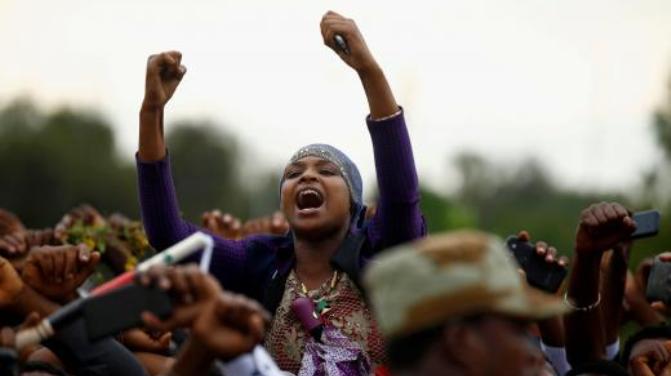Ethiopia renews accusations that Egypt supported Oromo unrest

November 1, 2016 (KHARTOUM) – Ethiopia Tuesday renewed accusations that Egypt and Eritrea fuelled a wave of protests in Oromia region that led the government to declare a six-month state of emergency.
The visiting Ethiopian Minister of Federal Affairs and Pastoral Area Development, Kassa Tekleberhan, reiterated that his country has “ample evidence” of Egypt and Eritrea involvement in a series of protests in Oromia but also sprung up in the Amhara region.
Tekleberhan said they are still calculating the exact numbers of individuals who were killed during the unrest.
According to Human Rights more than 400 people have been killed in clashes with the security forces in Oromia, although the government disputes this figure.
Ethiopian authorities say Cairo backs the banned Oromo Liberation Front that organized attacks across the populous region of Oromia, and led to the declaration of a state of emergency.
Commenting on a ministerial reshuffle announced on Tuesday hours before the press conference, Tekleberhan said the new cabinet was necessary to continue the development programmes and denied that it was a result to the protests.
He further praised the support of the Sudanese government to his country describing it as an unforgettable “historical stance”.
He further said he discussed with President Omer al-Bashir and a number of Sudanese officials how to sustain peace in Ethiopia and issues of joint concern.
The construction of Ethiopia’s 6,000-megawatt Grand Renaissance Dam has become a bone of contention between Ethiopia and Egypt, which lies downstream and relies on the Nile River for agricultural, industrial and domestic water use.
Last October, Egyptian President Abdel Fattah al-Sisi denied Ethiopian accusations that his government was supporting the opposition OLF which accused of orchestrating the protests
“I want to assure the brothers in Ethiopia that Egypt has never ever offered any support to the opposition and will not carry out any conspiratorial action against Ethiopia,” al-Sisi said on 13 October.
The construction of the Grand Renaissance Dam has raised tensions between Ethiopia and Egypt,which lies downstream. Addis Ababa says the dam would be used to only produce power and would not affect Egypt which relies on the Nile River for agricultural, industrial and domestic water use.
(ST)
